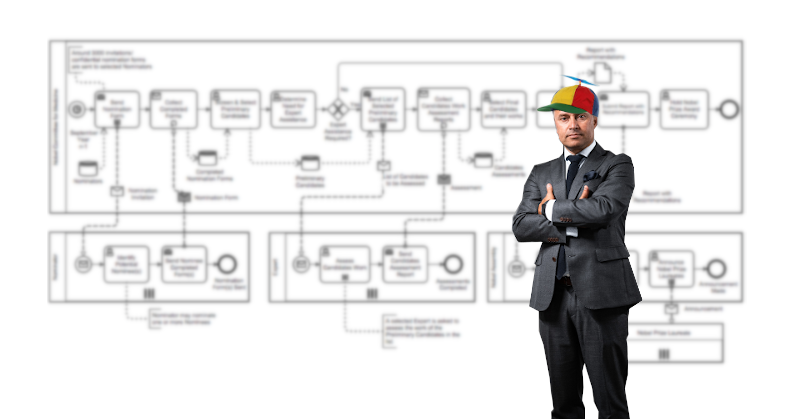Business Managed I.T. - How and Why
Business departments have to improve their own technology game for better capabilities and a better relationship with central I.T.


Many business teams are currently finding themselves at an impasse because of a flood of information and an over-centralisation of data control. Consider the average risk department for example. Expected to calculate complex actuarial positions on complex data sets, crippled by outmoded tools and processes. The business needs more complex reporting but IT cannot provide access to the data and tools because, really, no one knows what to ask for.
Some blame the IT department for this deadlock, but it’s difficult for an IT department to react to vague demands for “Data Democracy” and “Data Lakes” when they have Compliance creating ever more complex rules and restrictions as well as the phones, laptops and databases to take care of. If business departments want to move forward then they are going to have to start acting more like development teams - able to speak the language and better understand the nuance of IT - able to understand and ask the right questions about data structures and data security.
Business departments have to start creating their own basic IT infrastructures - simple, safe, automated data processing pipelines. Skill Sprints and modern cloud computing platforms enable us to create these systems with quite minimal learning and transformation effort.
I developed Skill Sprints in response to a new technology from Google. I had been working as a “DevOps Engineer” for some time - helping dev teams to consume cloud infrastructure - but the introduction of Kubernetes changed all that. It does 90% of my job out of the box, far better than I could ever hope to achieve. Skill Sprints enabled me to carry on working in this domain - teaching the remaining 10% to the Development teams - many of whom were eager to bring this function “in house” giving them full, end to end control of the lifecycle of their software.
Skill Sprints have been very successful for me. My relationships with my clients are much better because my deliveries are cleaner and much more sustainable. Before, when I was working as a “hands on technical consultant”, fires would break out as soon as I left the job. No one owned my work - no one cared for or maintained it. With Skill Sprints my focus is on building knowledge and ownership with the client and preventing a dependency. This is a stark contrast from my days as a traditional consultant. Finding new clients was annoying so I inevitably dragged things out - often at the expense of quality and good relationships.
Technical knowledge is “tacit knowledge”, meaning that in order to learn it, the student needs to have hands-on experience closely guided with expert tuition. Effective learning is built on top of our existing understanding and knowledge. Training, either online or on-site, does not provide support to implement the learnings back to your business. Traditional consultants deliver PowerPoints with recommendations and theory with little thought of a didactic approach.
Skill Sprints are low risk, one or two week, intense “micro-transformation” projects. Side by side with your staff, we provide on-site guidance and experiential learning by helping them directly deliver something. During the Skill Sprint a tangible value must be created ensuring the output is applied and transformative. Skill Sprints guarantee the participants have all necessary support and timely feedback enabling them to deliver results that are measurable, specific and visible.

Further Reading - The Peril of Shadow IT
The liabilities that Excel exposes us to are only getting worse as our jobs become more and more data orientated and the volume and complexity of this data increases exponentially. How can Python and Git deliver us from the copy and paste quagmire?